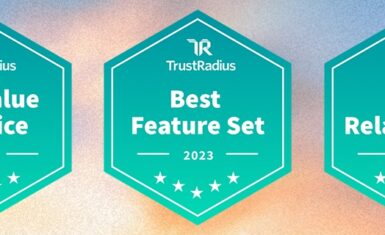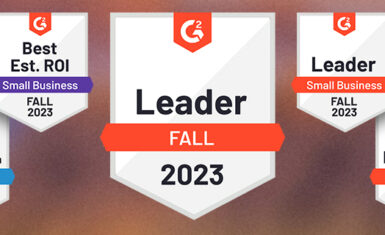What’s it like when you’re neurodivergent but haven’t been diagnosed yet? It’s different for everyone, of course, but in my case, I spent decades trying to present myself the way I thought I should be. I struggled daily with things that seemed to come easily to others. When measured against neurotypical standards, I constantly came up short.
If you’d only apply yourself.
If you’d only focus and pay attention.
I heard these all the time. To me, they meant: If you’d only not be the way you are.
Advocating for neurodiversity
When I was finally diagnosed as neurodivergent as an adult, it was a relief. I began to lean into my neurodivergence, working with my strengths (and, it turns out, I do have a lot of strengths) and seeking accommodations and workarounds for things that are harder for me.
I’ve become a vocal advocate for embracing neurodiversity in the workplace, because I know firsthand what a monumental difference it can make when you’re part of an organization that not only recognizes but genuinely values diversity of thought. I’m fortunate to have found that in my current role, and I believe that what I experience here should be the rule, not the exception.
Now that I’m in the right work environment, I’m perceived as an effective executive and leader not in spite of my differences, but in many ways because of them. That’s important. And it’s not because people are indulging me. Neurodivergence like mine leads to breakthroughs and innovations. Homogenous groupthink never busted through plateaus. Filling a room with people of different backgrounds, experiences, and ways of thinking means challenging the status quo and going further, faster.
Everyone should feel safe to thoroughly, openly, and unapologetically be their whole, authentic selves at work, whether they’re neurotypical or neurodivergent. The world is just beginning to warm up to embracing neurodiversity, but overall, it’s still deeply stigmatized—especially in the workforce, let alone at the executive level. We have a long way to go. And I think the deeply rooted stigmatization of neurodiversity is a big miss for today’s workforce.
A competitive advantage
Tolerating neurodiversity isn’t enough. Sprinkling it in for the sake of tokenism isn’t enough. (For the record, that goes for other forms of diversity, too.) Diversity of thought is a gift, and it should be seen as such. I truly believe it’s a competitive advantage for businesses. And in order to really embrace neurodiversity, you have to create a safe space for it. It’s one thing to say that you welcome neurodiversity, and it’s another to have established an environment with such psychological safety that people are comfortable showing up as they are, leveraging their unique skills and different ways of approaching problems.
I can’t tell you exactly what gifts you’ll get by embracing neurodiversity in the workplace, because neurodiversity isn’t one-size-fits-all. For me, being able to show up as I am means offering up highly creative problem-solving. It means that when a crisis hits, I’m a go-to because I can be calm, strategic, and develop a crystal clear action plan. (I may not be able to put my laundry away in a reasonable time, but I am excellent in a crisis.) I’m an empathetic leader who has a knack for disarming people and encouraging transparency and authenticity.
Being neurodivergent is not all sunshine and rainbows, of course. Some of the neurotypical majority takes for granted how easy it is for them to get dressed in the morning, show up for work or stand up and give a presentation in front of others. The world is built for the neurotypical majority, and I still run up against barriers daily. I believe a remote-first, outcomes-oriented environment is an essential component of an inclusive workplace, and I wish more companies embraced it. This approach allows me (and people who share my circadian rhythm) to work where, when, and how I do my best work. (If you schedule a call at 8 a.m. ET, you can expect that I will decline or openly show up with limited brain capacity.)
Embracing neurodiversity in the workplace
My company Alludo is leading the way when it comes to embracing neurodiversity in the workplace, and we’re still learning. We recently launched an internal Neurodiversity Employee Resource Group, for which I’m the executive sponsor. I am so excited to have more conversations about the gifts of neurodiversity and the unique and varied obstacles we each face. Again, if you interview 100 neurodivergent people, you’ll hear 100 different sets of strengths and challenges. That’s why I can’t tell you exactly what to expect if you create an environment of psychological safety and embrace neurodiversity at your organization. But I can tell you that you, your employees, and your entire organization will be better off if you do.






